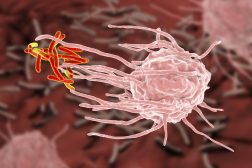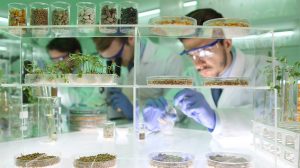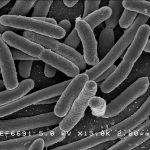Definition
A Gram-negative, facultatively anaerobic, rod-shaped species belonging to the family Enterobacteriaceae
Supplement
Enterobacteriaceae is a family of Gram-negative, rod-shaped, typically 1-5 μm in length, facultative anerobes. Many of them are a normal part of the gut flora in the intestines of humans and other mammals. Escherichia coli belongs to this family. Thus, it is negative in gram staining and facultatively anaerobic. Its size is typically 0.5 x 3-5 m and is abundant in the colon of mammals. Many strains of Escherichia coli are harmless as they thrive in the gut of their host, and help in producing vitamin K2.1 Nevertheless, some serotypes can be pathogenic especially in immunocompromised host and may cause serious food poisoning in their hosts that ingest a contaminated food. In humans, pathogenic Escherichia coli can cause gastroenteritis, urinary tract infections, and neonatal meningitis.
Escherichia coli plays an important role in many laboratory experiments. They have been used in biological engineering and industrial microbiology. For instance, this species are used in recombinant DNA technology.
Abbreviation / Acronym: E. coli
Scientific classification:
- Domain: Bacteria
- Phylum: Proteobacteria
- Class: Gammaproteobacteria
- Family: Enterobacteriaceae
- Genus: Escherichia
See also:
- enterobacteria
Related term(s):
- Escherichia coli infections
- Eco ri
- Eco rii
- Eiec
- Ehec
Mentioned in:
- Capsule
- Bacteriophage
- Okazaki fragment
- Induced enzyme
- Binary vector
- DNA polymerase II
- Gram-negative bacteria
- Recombinant DNA
- Thienylalanine
Reference(s):
1 Bentley, R. & Meganathan, R. (1982). “Biosynthesis of vitamin K (menaquinone) in bacteria”. Microbiol. Rev. 46 (3): 241–80.
Further reading:
Preventing STEC Outbreaks in Leafy Vegetables. (2018). Rapidmicrobiology.Com. https://www.rapidmicrobiology.com/news/preventing-stec-outbreaks-in-leafy-vegetables







